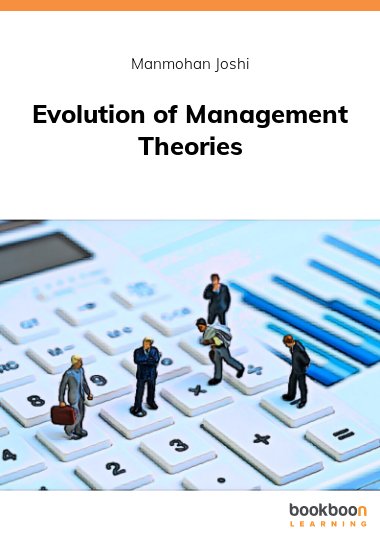Management thought has a history that goes back to ancient times, and management theories have been developed from the primitive base and they are continually being tried to justify their contribution in societies. Furthermore, it was not until the early part of the 19th century that formal management theories began taking shape. This book provides an insight into the various theories of management, and will be useful to managers as well as those aspiring for managerial positions.
About the author
Manmohan’s interactive style and unique ability to engage with young as well as not so young has made him a very effective training facilitator. He has conducted a horde of training programmes in India and the Middle East. His deep insight into the culture of his home country – India – and that of the Middle East has made it possible for him to effectively engage audiences. He has also made presentations on various topics at International Conferences under the auspices of UNESCO, and ensured that his practical viewpoints are shared with a wide variety of audience.
Currently a Freelance Training Facilitator, Manmohan has authored several eBooks on Management and Education.
Having worked as Head of several educational and training organisations in India, Kuwait and Oman, he has specialised in training programmes for people in a wide variety of professions. He has also made a Webinar presentation on Personality Development organised by a US-based organisation.
An alumnus of Cambridge International College (UK), Manmohan also holds a Ph.D. in Management, and Masters in Business Management, Education and English.
Manmohan is currently India-based and conducts training programmes for college students, professors and management executives.
Among his other programmes the following are in much demand:
Soft Skills
Business Communication
Leadership & Teambuilding
Pedagogy of Teaching at college/school level
EMI (English as Medium of Instruction) Skills for college professors
Guidance and counselling in educational institutions


